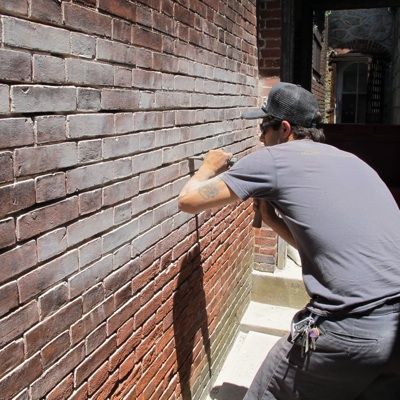The Enduring Allure of Brickwork: A Guide to Masonry Services in the USA
Brickwork is a timeless craft that has been used for centuries to construct everything from homes and businesses to bridges and monuments. Across the USA, from the cobbled streets of Boston to the sprawling ranches of Texas, brick work adds a touch of history, character, and enduring beauty to our communities.
If you’re considering a new construction project or undertaking renovations, then incorporating brickwork into your design can be a fantastic choice. But where do you begin? This guide will delve into the world of masonry services in the USA, providing you with the information you need to find masonry near me, understand the different types of brickwork, and explore the many advantages of using brick in your next project.
What is Masonry?
Masonry is the art and science of building structures using bricks, stones, concrete blocks, or other similar units. A skilled mason, also known as a bricklayer, is a tradesperson who possesses the knowledge and expertise to lay bricks in a specific pattern and bond to create strong, durable, and aesthetically pleasing structures. Masonry projects can be large or small, ranging from intricate brick facades to functional chimneys and fireplaces.
The Advantages of Brickwork
There are many compelling reasons to choose brickwork for your next project. Here’s a closer look at some of the key benefits:
- Durability: Brick is an incredibly strong and long-lasting material. Brick structures can withstand centuries of exposure to the elements, making them a wise investment for homeowners and businesses alike.
- Versatility: Brick comes in a wide variety of shapes, sizes, colors, and textures. This allows for a high degree of design flexibility, enabling you to create a unique look that complements the style of your property and surrounding architecture.
- Low Maintenance: Brick requires minimal upkeep. Unlike other materials, such as wood, brick won’t rot, warp, or crack easily. With occasional cleaning, your brickwork can maintain its beauty for generations.
- Energy Efficiency: Brick walls offer excellent thermal insulation, helping to regulate indoor temperatures and reduce energy costs. In the summer, brick walls help keep your home cool, while in the winter, they help retain heat.
- Fire Resistance: Brick is a fire-resistant material, providing an additional layer of safety for your property. Brick walls can help slow the spread of fire, giving occupants valuable time to evacuate in the event of a fire.
- Increased Property Value: Homes and businesses constructed with brickwork tend to have a higher property value compared to those built with other materials. Brick is seen as a mark of quality and craftsmanship, which can be appealing to potential buyers or renters.
Types of Brickwork
There are many different types of brickwork patterns and bonds used by masons to create unique visual effects and achieve optimal structural stability. Here are some of the most common types of brickwork:
- Running Bond: This is the most basic and common type of brickwork pattern. In a running bond, the bricks are laid in a continuous horizontal pattern, with the vertical joints between the bricks in each course (or row) centered over the joints in the course below.
- English Bond: In an English bond pattern, the bricks are laid in alternating courses of headers (the ends of the bricks) and stretchers (the sides of the bricks). This creates a strong and visually appealing pattern that is often used for walls and facades.
- Flemish Bond: Flemish bond is a more intricate pattern that incorporates both headers and stretchers in a single course. The headers and stretchers are arranged in a repeating pattern that creates a checkerboard effect.
- Stack Bond: In a stack bond pattern, the bricks are laid in vertical rows with the joints aligned continuously from top to bottom. This creates a clean and modern look that is often used for contemporary architecture.
- Soldier Course: A soldier course is a type of brickwork where the bricks are laid vertically, rather than horizontally. Soldier courses can be used as decorative elements or to create capstones for walls.
Finding a Qualified Mason Near You
When it comes to your brickwork project, choosing the right mason is essential. A skilled and experienced mason will ensure that your project is completed to the highest standards, using the best materials and techniques. Here are some tips for finding a qualified mason in the USA:
- Get recommendations: Ask friends, family, neighbors, or your general contractor for recommendations of reputable masons













